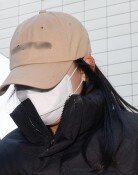Stasi Documents
A 26-year-old college student who participated in pro-democracy movements is gunned down by police. A mass of college students take to the streets in protest. Police are called a puppet of the right-leaning government, resulting in the replacement of the government by leftist forces. This is what happened in West Germany on June 2, 1967. The event triggered the 1968 student movement against the government. Leaders of the movement, including former German Chancellor Gerhard Schröder, are called the 68 generation, similar to Koreas 386 generation, or those who were in their 30s in the 1990s, went to college in the 80s, and were born in the 60s.
The police officer who shot the student dead, Karl-Heinz Kurras, was found last year to be a spy of the Stasi, the secret police of the former East Germany. This means students in West Germany were swayed by East Germanys manipulation into plunging their country into turmoil. At the time of East Germanys collapse in 1989, the Stasi had 91,015 employees, 173,081 spies in East Germany and 1,553 in West Germany. Such spies infiltrated the West German government as well as intelligence agencies.
In 1974, Günter Guillaume, an adviser to then German Chancellor Willy Brandt, was found to be a Stasi spy. Brandt promoted the Ostpolitik policy and held two inter-German summits. Guillaume was a sleeper spy, who began espionage operations after becoming a close aide to the chancellor as a faithful member of the Social Democratic Party. Germany was dealt a much bigger blow after reunification when secret Stasi documents were opened to the public. Friends, colleagues and even husbands and wives were informers. The BBC said one in every 6.5 East Germans was a spy.
According to Stasi documents obtained by The Dong-A Ilbo through the Woodrow Wilson Center in Washington, certain South Koreans secretly visited North Korea through arrangements made by the North Korean Embassy in East Germany in the late 1980s. A senior researcher at the center said, Given that North Korea called a man and his son from South Korea our comrades in the South, they might have been secret members of the North Korean ruling Workers Party or resident agents. The names, birthdates and passport numbers in the documents were erased, so where they are and what they are doing remain unknown. South Korea can receive a shock as great as West Germanys documents if and when secret documents of North Korea are released after reunification of the two Koreas.
Editorial Writer Kim Sun-deok (yuri@donga.com)







